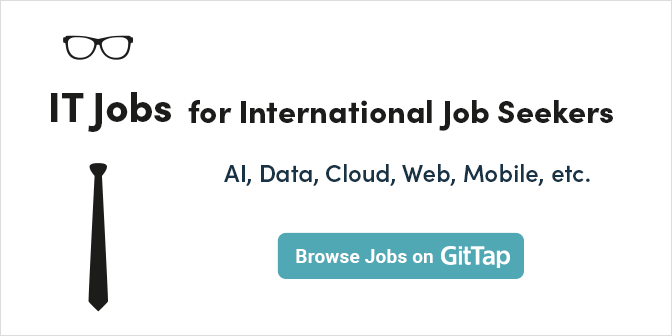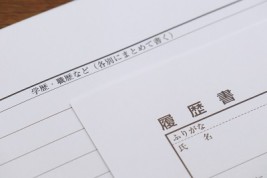When the World Health Organization officially declared the coronavirus or COVID-19 as a global pandemic on March 11, 2020, multiple countries immediately felt its impact. China, South Korea, Iran, and Italy were among the initial nations with the highest number of cases.
Another country that was heavily affected by the worldwide health crisis early on was Japan. A month after COVID-19 was officially recognized as a pandemic, it already tallied close to 800 new infected cases.
But amazingly, Japan managed to suppress the virus from spreading disastrously. Japan’s coronavirus peak happened on August 03, 2020, when they reached just two new cases shy of 2,000.
That figure may seem worrisome when you consider that Japan is a first-world country, but it is relatively minuscule compared to their superpower counterparts. During the same period, the United States of America was fast approaching the 50,000 new active cases territory. India, another top nation, easily surpassed the 50k mark by that point.
To further illustrate just how effective the Japanese government has been in managing the coronavirus ordeal, as of October 2020, the United Kingdom, which has a population of approximately 58 million people less than Japan, has 690,000 more total COVID-19 infections.
The secret behind the country’s success in controlling the coronavirus is its excellent healthcare industry. Japan’s healthcare workforce, much like the rest of the world, consists of a collection of health and medical professionals, all working to improve the nation’s overall well-being and health service continuously.
While these healthcare professionals undoubtedly deserve all of the praise and recognition they receive for their consistent brilliance, there are also other unsung heroes supporting the healthcare field who are worthy of acknowledgment. One of the most overlooked are IT engineers.
In this article, we’ll cover the roles of IT engineers in Japan’s healthcare industry amid COVID-19.
Contents
Japan’s Healthcare Industry

To fully understand IT engineers’ and professionals’ roles in Japan’s healthcare system, we must first overview the industry itself.
In terms of healthcare, Japan is considered to be among the world’s very best. For starters, healthcare is inexpensive, virtually free, and it covers everyone living within the country’s borders. This includes Japanese citizens and naturalized expats. Even foreigners can avail of free healthcare, granted that they stay for more than a year.
Because their world-renowned healthcare system is affordable, the country has always maintained a high life expectancy. Japan is currently ranked 2nd in the entire world with an 85.03 years old average lifespan, only being surpassed by Hong Kong’s 85.29.
Their high-quality healthcare industry also boasts over 8,300 medical facilities scattered across the island country to accommodate the 126 million population. Additionally, the government has prepared 13 hospital beds for every 1000 citizens, which is well above the global average.
Although Japan is currently enjoying an excellent and organized medical system, its government administration and healthcare industry face a unique challenge, with ramifications soon to be felt.
As of now, 28% of Japan are aged 65 and older. That figure is expected to skyrocket to 35% or over a third of the entire population by 2040. This means that the number of senior citizens who need medical attention will easily outnumber the healthcare workers supposed to take care of them.
Japan is now trying to make up for the nation’s rapidly aging population and a potential insufficient number of healthcare workers by investing in state-of-the-art medical technology. But the types of machinery and equipment are not only expected to help in Japan’s aging dilemma; they are also meant to prevent, manage, and combat situations such as pandemics in the caliber of COVID-19.
Roles of IT Engineers in Healthcare

IT engineers’ mastery of artificial intelligence (AI), robotics, software, programming, etc. has made them some of the most versatile and reliable medical technology experts. Their knowledge and experience in the field have helped Japan’s healthcare industry to be leaps and bounds ahead of other first-world nations.
Amid COVID-19, IT engineers have showcased how medicine can be made more convenient and accessible through AI. Artificial intelligence has helped medical professionals and experts conduct virtual checkups, treat patients, do extensive research, and control the infection’s spread.
IT engineers also have their hands full in areas such as data storage. Data storage is a major strand in the fight against the pandemic. Keeping, supplying, and retrieving critical information that includes medical and travel histories, symptom monitoring, and close contact tracing can ultimately help flatten the curve.
The Japanese government and its health experts also rely on IT engineers for data collection and analysis. These types of information can help the government enact the proper laws necessary for facing the current health crisis and be of much help for possible future ones. Health experts also use the data to better comprehend the virus, which will guide the process of coming up with solutions.
Outside of COVID-19 management, IT engineers will also be of service to other essential healthcare technologies like medical devices and materials, clinical laboratory testing, healthcare ICT, assistive technologies, and infrastructure.
Qualifications of an AI Engineer in Japan’s Healthcare Industry

Even before the coronavirus crisis, artificial intelligence had been a driving force for Japan’s healthcare industry. In 2019, Tokyo Women’s Medical University–Waseda University Joint Institute for Advanced Biomedical Sciences had successfully performed a brain surgery that treated a patient’s essential tremor with a cutting-edge robot.
Smart Cyber Operating Theater or SCOT, which was part AI, part robotics, led the groundbreaking surgery. The machine instructed the surgeons on which parts of the brain should be prioritized, what types of incisions should be executed, and even conducted surgical prognosis and magnetic resonance imaging (MRI) as the surgery was on-going.
With AI gaining more traction in the healthcare field and advances being more prevalent, it is no wonder why more and more IT professionals have now taken their talents to be AI engineers in Japan’s healthcare industry. And many economic experts believe that this is the ideal career move for IT engineers, as the country’s Ministry of Economy, Trade and Industry are in need of 120,000 AI specialists by 2030.
AI engineers working in Japan will generally spearhead AI research and development in the healthcare industry. So, most medical employers will be seeking the best and most knowledgeable in C #, C ++, and Python. Moreover, they’ll also be looking for candidates who are proficient in the internet of things (IoT) and big data.
Because of their artificial intelligence expertise, IT engineers have become some of the most sought-after professionals in Japan’s campaign against COVID-19.
Summary
Japan’s healthcare industry is among the best in the world. Their world class healthcare amidst the COVID-19 crisis can be attributed to medical institutions fast-forwarding technological applications to their operations and diagnostics, with the help of IT engineers.
IT engineers play a significant role in Japan’s medical initiatives and the overall success in the coronavirus age. The impact and value of their knowledge and expertise in medical technology could likely be one reason why this pandemic will be no more shortly.
Sources:
https://www.nytimes.com/interactive/2020/us/coronavirus-us-cases.html
https://www.bbc.com/news/world-asia-india-53981828
https://github.com/CSSEGISandData/COVID-19
https://www.worldometers.info/world-population/japan-population/#:~:text=Japan%202020%20population%20is%20estimated,of%20the%20total%20world%20population
https://ccchclinic.com/importance-benefits-primary-health-care/
https://opentoexport.com/article/healthcare-and-medical-sector-in-japan/
https://www.eu-gateway.eu/news/healthcare-medical-technologies-japan-trends-and-opportunities-0
https://www.eubusinessinjapan.eu/library/publication/report-developments-in-the-japanese-healthcare-industry
https://www.businesswire.com/news/home/20190625005862/en/The-11.9-Trillion-Global-Healthcare-Market-Key-Opportunities-Strategies-2014-2022—ResearchAndMarkets.com
https://jintensivecare.biomedcentral.com/articles/10.1186/s40560-020-00452-5
https://japantoday.com/category/features/health/how-artificial-intelligence-is-transforming-medicine









